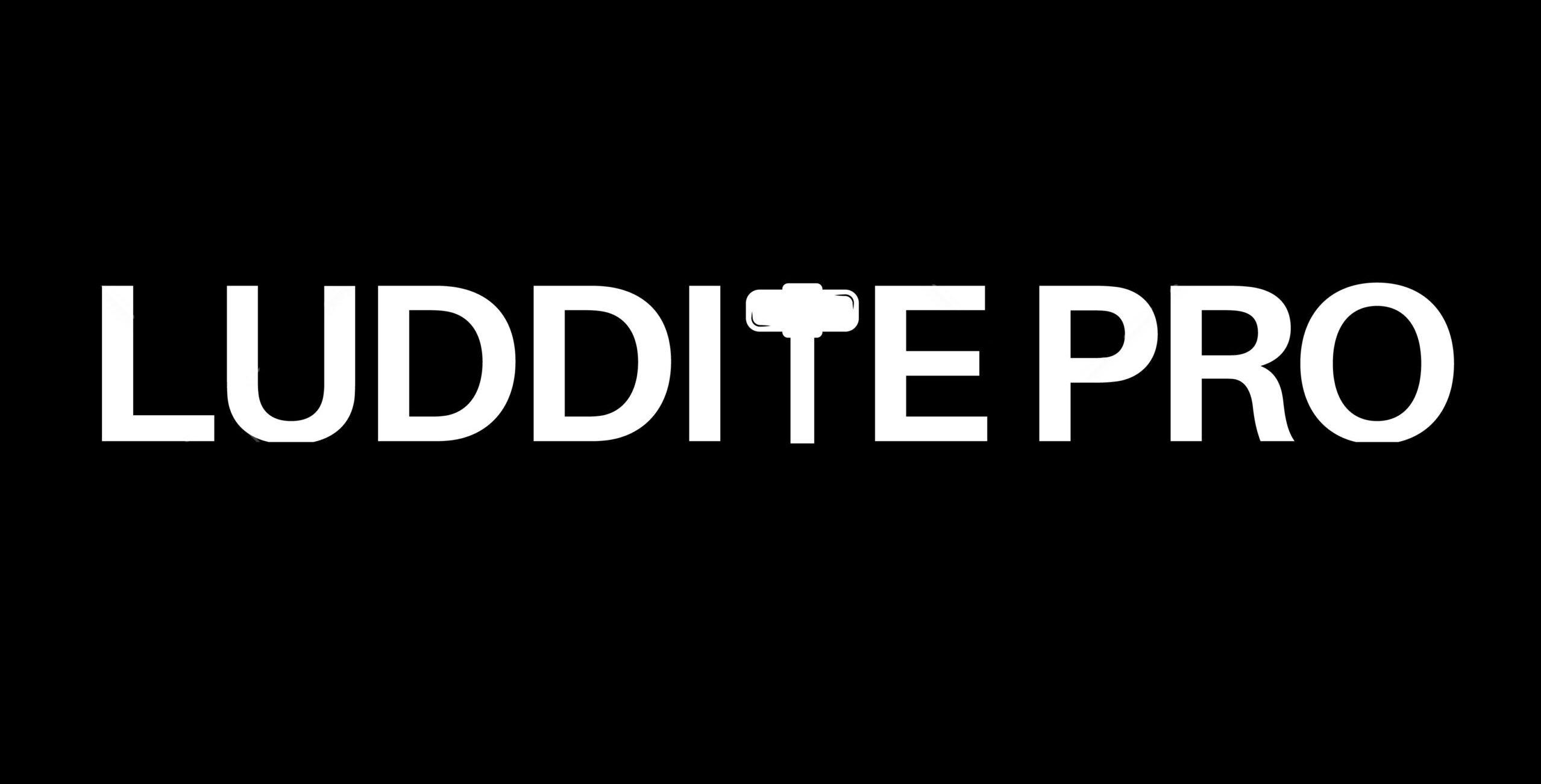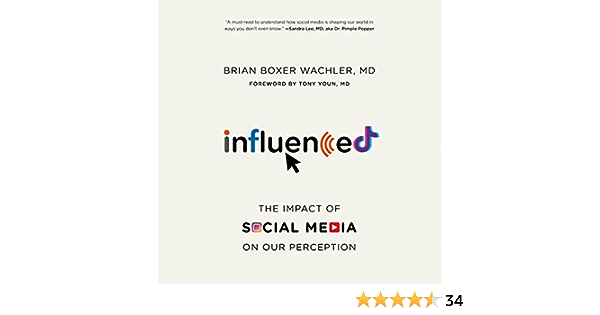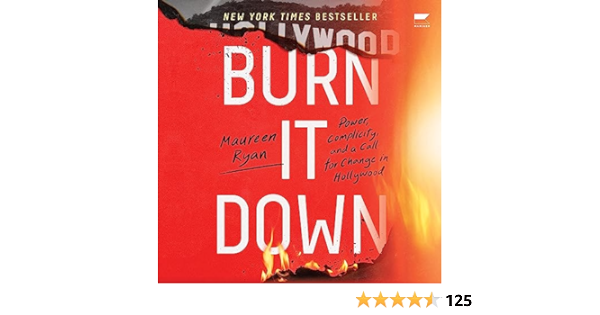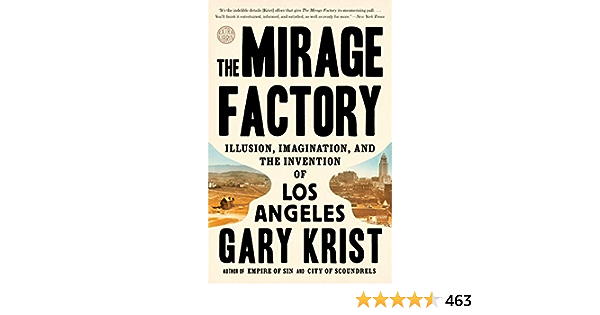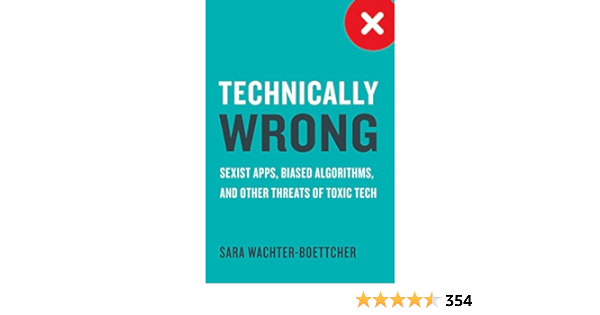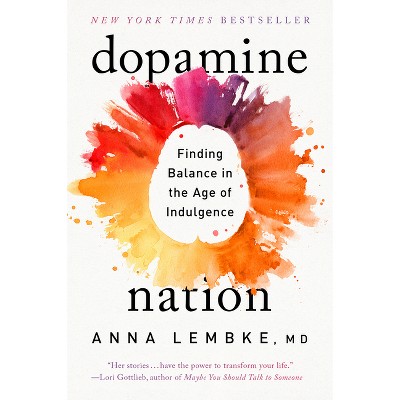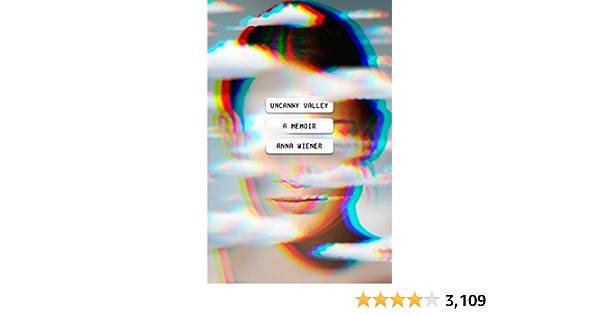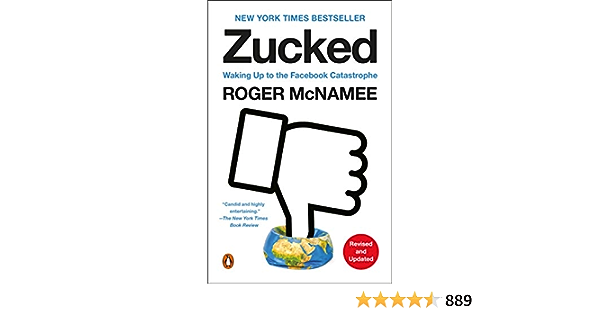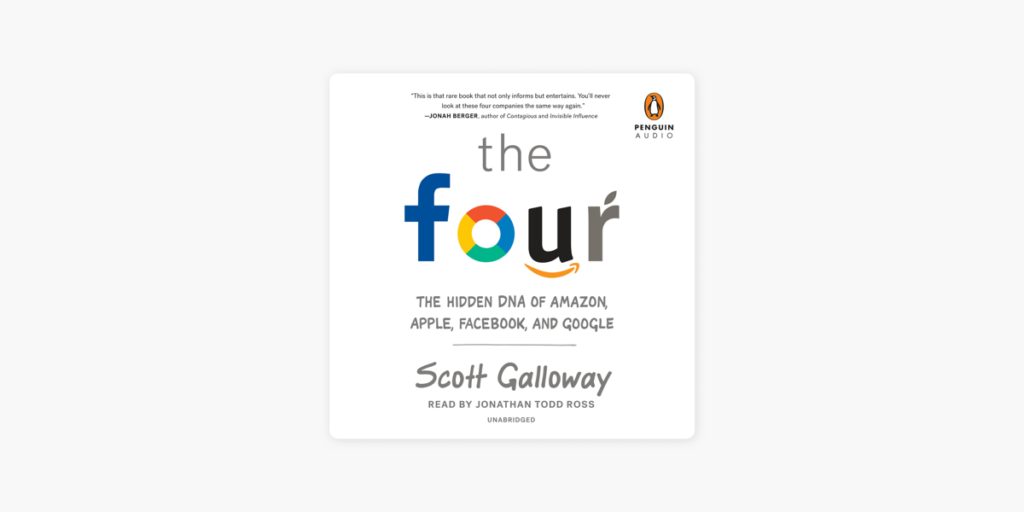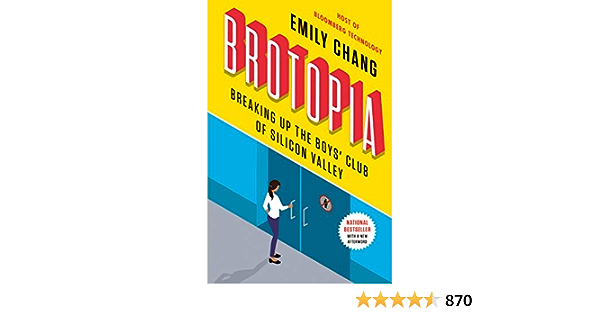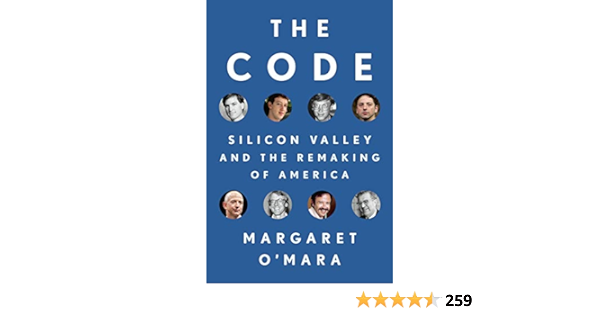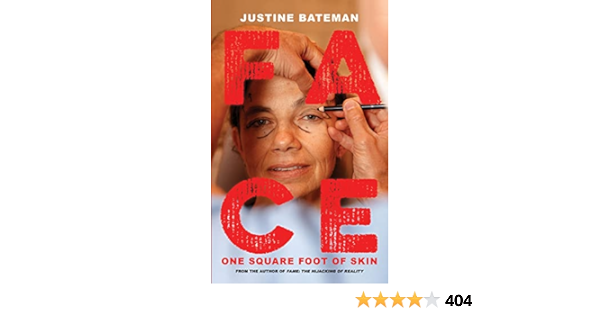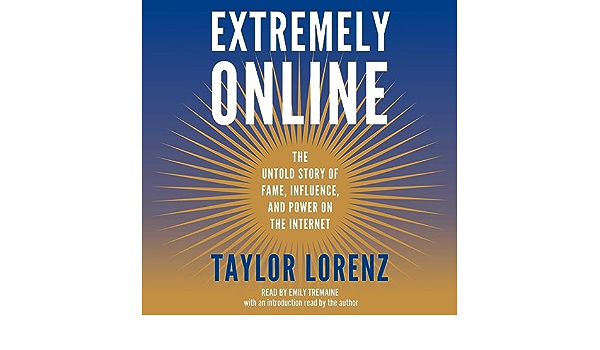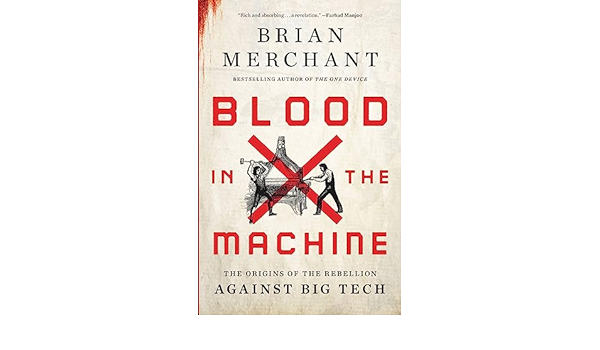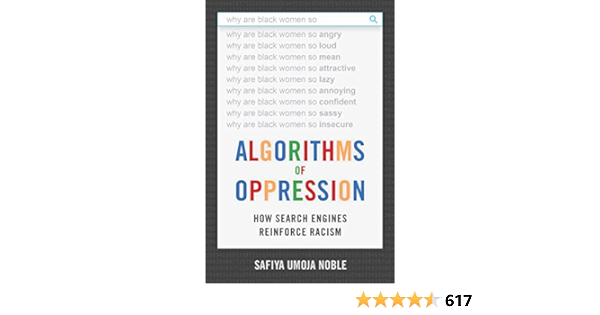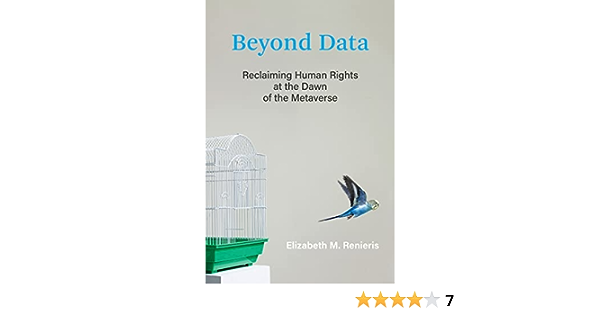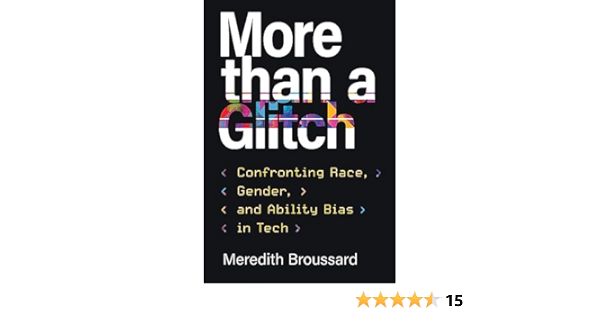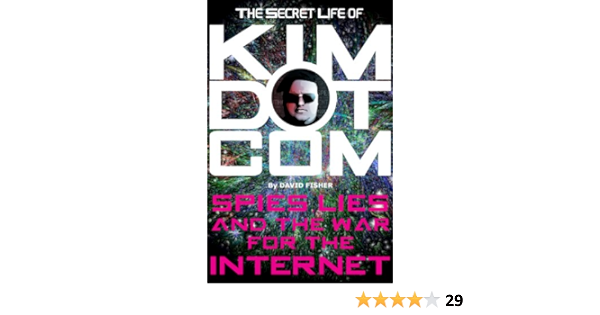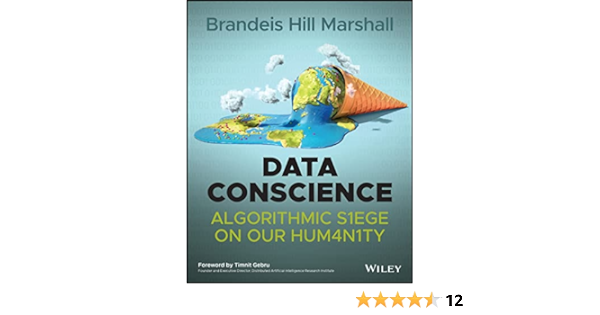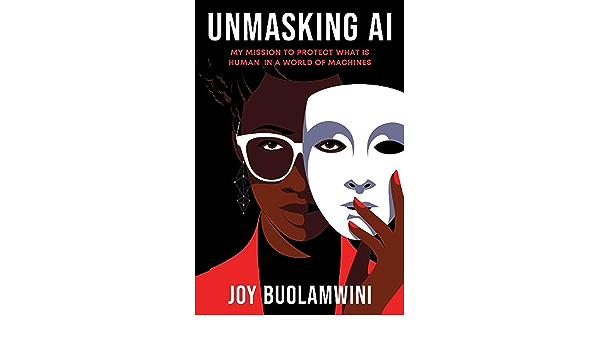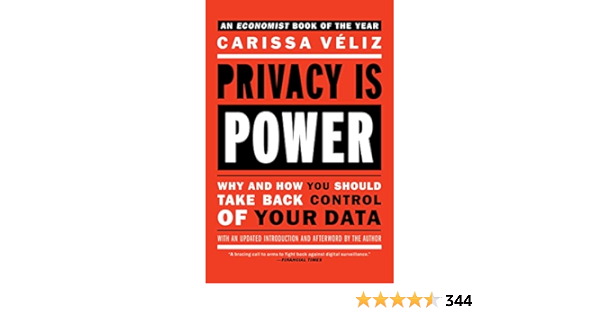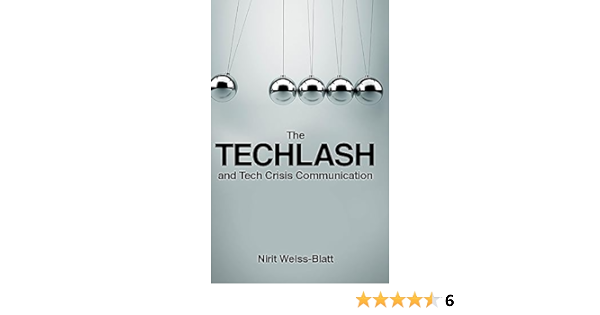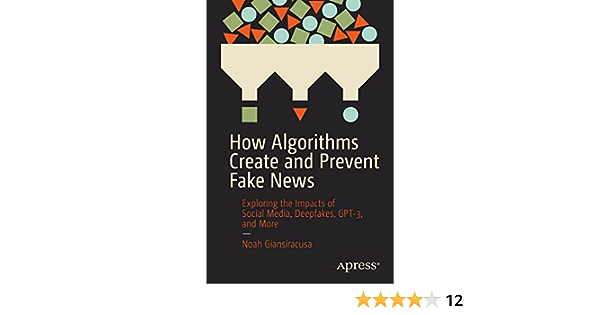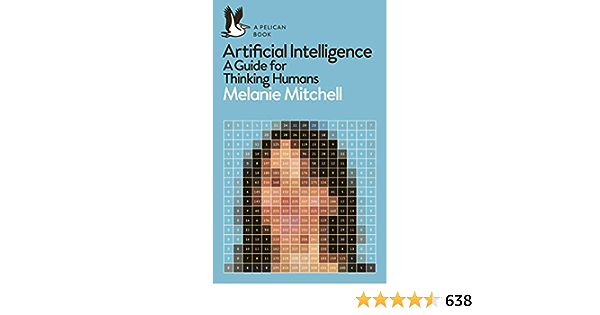Essential Luddite Reading List: 31 Books to Learn More About Tech and Power
Winter is coming, and we support all forms of creative expression at Luddite Pro. This includes authors, and some amazing authors are writing (and/or have written) some fantastic books to learn more about the effects of artificial intelligence, algorithms, and technology on society.
Hollywood is on strike and may soon spread to the gaming industry, too. This leaves a gap where we should explore other forms of entertainment–winter is great for curling up indoors with a good book. Here’s the essential Luddite reading list to upgrade your knowledge during the winter holiday.
This article may contain affiliate links, and Luddite Pro may receive a commission from any links you click on this page.
Influenced: The Impact of Social Media on Our Perception
By Brian Boxer Wachler, MD
This book delves into the psychological and behavioral effects of social media influencers on individuals. While social media platforms offer numerous opportunities for people to build their digital presence and popularity, the book questions the impact this has on human cognition and behavior. Dr. Boxer Wachler presents evidence that our brains are literally rewiring in response to the constant alerts, likes, and notifications we receive on social media. These interactions, which may seem trivial, actually trigger significant responses in our brains, driving us to seek approval often from people we don’t even know. The book combines scientific research, interviews with influencers, and pop-culture references to examine how our addictive engagement with social media and its influencers is altering the way we think, feel, and interact.
Crash Override: How Gamergate (Nearly) Destroyed My Life, and How We Can Win the Fight Against Online Hate
By Zoe Quinn
Crash Override is a compelling account of the Zoe Quinn’s personal experience with online harassment, specifically the #gamergate movement, which saw her victimized by a large online mob instigated by her ex-boyfriend. Instead of bowing to the pressure, Quinn became an advocate for making the internet a safer space. She founded the Crash Override Network, a resource dedicated to assisting victims of online abuse. The book provides an insider’s perspective on the extent and implications of online abuse, including Quinn’s work with tech companies and policymakers. Through her personal journey, both as a target and an activist, Quinn offers valuable insights into the darker aspects of internet culture, as well as practical advice on how to protect oneself in digital spaces.
Game Over: How Nintendo Zapped an American Industry, Captured Your Dollars, and Enslaved Your Children
By David Sheff
This book by David Sheff was first published in 1993 by Random House and provides an in-depth look into the rise of Nintendo as the dominant force in the electronic gaming industry up to that point. Despite its provocative title, the book takes a neutral stance, weighing both the positives and negatives of Nintendo’s business strategies. Sheff had the opportunity to interview key figures in the gaming industry, such as Howard Lincoln, Nolan Bushnell, Shigeru Miyamoto, and Alexey Pajitnov, among others. This extensive first-hand research has made the book a foundational resource for subsequent works on the history of the gaming industry. The book’s legacy is significant; its depth of research and the author’s access to high-profile industry figures have made it a go-to resource for anyone looking to understand the history of Nintendo and the gaming industry at large. It has been cited in numerous subsequent books and articles, establishing its place as a definitive work on the subject.
Burnt It Down: Power, Complicity, and a Call for Change in Hollywood
By Maureen Ryan
“Burn It Down” is a best-selling exposé by Vanity Fair’s Maureen Ryan that delves into the systemic issues of harassment and bias in Hollywood. The book argues that the problem is not isolated to “One Bad Man,” but is rather deeply embedded in the entertainment industry’s foundations. The book aims to dismantle the myths that Hollywood has propagated, which have allowed abusers to persist and escape accountability. Among these myths are the notions that Hollywood is a meritocracy and that creativity requires a certain level of mistreatment or sacrifice of human dignity. By combining insights from industry insiders, historical context, and popular culture analysis, “Burn It Down” presents a comprehensive look at the urgent need for reform in the entertainment world. It not only diagnoses the problem but also suggests potential solutions for creating a more equitable and accountable industry.
The Mirage Factory: Illusion, Imagination, and the Invention of Los Angeles
By Gary Krist
This book zeroes in on three key figures who played pivotal roles in this transformation between 1900 and 1930. William Mulholland, a self-taught engineer, designed an aqueduct that enabled the area to sustain urban life. D.W. Griffith, a filmmaker, turned movies from a small novelty into a cornerstone of American culture, thus giving L.A. its defining industry. Aimee Semple McPherson, a captivating evangelist, established a new religion and helped to shape L.A.’s identity as a hub for spiritual exploration. All three visionaries faced hubris, scandal, and significant setbacks that threatened their personal empires. Despite this, their combined efforts resulted in the establishment of Los Angeles as we know it. “The Mirage Factory” is a captivating story of how an unlikely piece of land became one of the world’s most iconic cities, driven by human ambition, engineering, and imagination.
Oddball: A “Sarah’s Scribbles” Collection
By Sarah Andersen
Not every book has to be nonfiction–sometimes being relatably human is enough. This collection in the “Sarah’s Scribbles” series by New York Times bestselling author and Goodreads Choice award winner Sarah Andersen offers a humorous look at the nuances of millennial life. This fourth book continues to captivate readers with its relatable and funny take on topics ranging from procrastination and the creative process to the irresistible allure of kittens and the liberating feeling of caring less about appearances as one ages. With its spot-on observations and entertaining illustrations, “Sarah’s Scribbles” remains unparalleled in capturing the awkwardness and hilarity of modern young adult life.
Technically Wrong: Sexist Apps, Biased Algorithms, and Other Threats of Toxic Tech
By Sara Wachter-Boettcher
In “Technically Wrong,” Sara Wachter-Boettcher delves into the ethical and social shortcomings of the tech industry. From oversight and bias to ethical lapses, the book exposes the issues deeply embedded in tech products that have become integral to our daily lives. Wachter-Boettcher argues that users should be more informed and demand better standards from tech companies. The book has been recognized as a Top Tech Book of the Year by Wired and a Best Business and Leadership Book of the Year by Fast Company, underlining its relevance and impact.
Dopamine Nation: Finding Balance in the Age of Indulgence
By Anna Lembke, MD
This book from Dr. Anna Lembke examines the delicate equilibrium between pleasure and pain, particularly in a modern world brimming with high-reward stimuli. The book argues that the constant chase for pleasure, facilitated by our digital devices, ultimately leads to suffering due to an imbalance in dopamine levels. Dr. Lembke condenses complex neuroscience into digestible terms, making it easier for the reader to understand the mechanisms behind compulsive behaviors and overconsumption. Drawing from her patients’ real-life struggles and recoveries, the book provides hope and practical insights for managing our cravings and transforming our lives. Overall, “Dopamine Nation” seeks to equip readers with the tools to navigate a world of abundant temptation by balancing the science of desire with the wisdom of recovery.
Uncanny Valley: A Memoir
By Anna Wiener
This memoir serves as an intimate examination of Silicon Valley during a transformative period. Written from Wiener’s first-hand experience, the book offers an unvarnished look at the tech industry’s rapid metamorphosis into a center of wealth and influence, drawing parallels to Wall Street. Amid the extravagance and idealism that characterizes Silicon Valley, Wiener explores the darker implications: unregulated data collection, rampant inequality, and the erosion of democratic values. It presents an urgent reflection on the state of the digital age, delving into the complexities and contradictions of a world that is still grappling with the ramifications of its own creations. Wiener’s wit and clear-eyed analysis make “Uncanny Valley” a must-read for anyone interested in understanding the seductive yet precarious ecosystem of tech culture.
Zucked: Waking Up to the Facebook Catastrophe
By Roger MacNamee
In “Zucked,” Roger McNamee, a tech venture capitalist and early mentor to Mark Zuckerberg, confronts the detrimental societal impact of Facebook. Once a proud supporter and major shareholder, McNamee grows disillusioned as he realizes the platform’s misuse by malicious actors and its role in undermining democracy. His concerns are dismissed by Zuckerberg and Sheryl Sandberg, leading him to take action. The tipping point comes with the election of Donald Trump and the flood of unsettling news highlighting Facebook’s role in the spread of misinformation and manipulation. Alienated and concerned, McNamee joins forces with other tech experts to address the existential threats posed by Facebook and the attention economy at large. The book serves as both a personal reckoning and a broader warning about the unchecked power of tech companies during a time of societal vulnerability.
VC: An American History
By Tom Nicholas
“VC” by Tom Nicholas delves into the history and evolution of the venture capital industry in America, tracing its roots from the financing of the whaling industry to its modern role in Silicon Valley. The book argues that venture capital is not just a form of financing but a state of mind, characterized by a willingness to take significant risks, a tolerance for failure, and a belief in innovation as a wealth generator. Nicholas explores how iconic VC firms like Kleiner Perkins and Sequoia invested in revolutionary companies like Genentech and Apple, shaping the tech landscape. The book also posits that venture capital is an inherently American institution, linked to the country’s entrepreneurial spirit and difficult to replicate elsewhere. Through a blend of entrepreneurial case studies and broader historical context, “VC” provides an authoritative and comprehensive look at the venture capital industry.
The Four: The Hidden DNA of Amazon, Apple, Facebook, and Google
By Scott Galloway
Scott Galloway’s book scrutinizes the unparalleled influence of Amazon, Apple, Facebook, and Google, collectively referred to as the Four. Galloway challenges popular myths surrounding these tech giants, asking fundamental questions about their meteoric rise and societal impact. He explores how these companies have seamlessly integrated into everyday life, achieving a level of market forgiveness for transgressions that would be ruinous for other businesses. Galloway unpacks the strategies beneath their successful exteriors, revealing how they tap into fundamental human emotions and needs, leveraging them at an unparalleled scale and speed. The book aims to equip readers with insights to understand these giants, whether their interest is competitive, collaborative, or simply cohabitational. Written in Galloway’s irreverent style, the book serves as both an analytical guide and a cautionary tale, highlighting the need to understand these omnipresent companies as they race towards trillion-dollar valuations.
Brotopia: Breaking the Boys’ Club of Silicon Valley
By Emily Chang
“Brotopia” by Emily Chang serves as a scathing critique of Silicon Valley’s gender-biased culture, dispelling the myth that the tech hub is a utopian space for innovation accessible to everyone. Chang describes Silicon Valley as a “Brotopia,” a space dominated by men who set the rules and reap the rewards, effectively shutting out women from immense opportunities for wealth and influence. The book delves into the history of how this gender imbalance came to be and why it persists despite the tech industry’s self-proclaimed progressiveness. Drawing from her well-connected network, Chang reveals what goes on behind the closed doors of male-dominated venture capital firms like Kleiner Perkins and Sequoia, where the reluctance to hire women is blatantly justified. The book also dismantles the often-cited “pipeline problem” and the myth of meritocracy in tech, showing how these excuses perpetuate a biased system.
The Code: Silicon Valley and the Remaking of America
By Margaret O’Mara
In her comprehensive book, historian Margaret O’Mara reveals the true, nuanced story of Silicon Valley, debunking simplistic narratives about its origins and growth. Using extensive research and firsthand experience, O’Mara traces the Valley’s history from the 1940s to the present, focusing on its deep-rooted relationship with the federal government and key institutions like the Pentagon and Stanford University. The book showcases a diverse cast, including both well-known figures and lesser-known pioneers, all contributing to the region’s innovation-driven culture. O’Mara delves into the heart of the secretive venture capital world, illuminating how it became the crucible for technological innovation and the American economy. She explores the evolution of major tech companies, their products, and their increasingly complex impact on society. The book concludes that understanding the real history of Silicon Valley is crucial for understanding its current influence, both promising and perilous, on society and the world at large.
Face: One Square Foot of Skin
By Justine Bateman
In “Face: One Square Foot of Skin,” Justine Bateman tackles the societal pressures and stigmas associated with aging in women, focusing specifically on their faces. Using a collection of fictional vignettes, Bateman delves into the perspectives of women from various walks of life, revealing how deeply ingrained attitudes towards aging women’s faces have become in society. Drawing from personal experiences and interviews, the book investigates the roots of these negative perceptions, highlighting their impact on women’s self-esteem. Bateman rejects the conventional notion that an older woman’s face needs “fixing,” advocating instead for a shift in societal attitudes. The book challenges readers to reconsider their own views on aging, pushing for a cultural change where a woman’s self-confidence is celebrated and fortified as she ages, rather than eroded by societal prejudice.
Extremely Online: The Untold Story of Fame, Influencer, and Power on the Internet
By Taylor Lorenz
In “Extremely Online,” Taylor Lorenz offers an in-depth analysis of the evolution of internet culture and its transformative impact on society. Leveraging her extensive reporting experience, Lorenz explores how online influence has changed the fundamental structures of various sectors, from the economy to social dynamics. The book delves into the power dynamics behind social platforms, detailing how these platforms have altered conventional ideas about content, connection, consumerism, and power structures. “Extremely Online” serves as a comprehensive social history of the internet, shedding light on how online trends and cultures have disrupted traditional systems and set new norms for the 21st century. It’s a behind-the-scenes look into the mechanics of our digital lives, offering valuable insights into how we’ve reshaped the internet and how, in turn, it has reshaped us.
Blood in the Machine: The Origins of the Rebellion Against Big Tech
By Brian Merchant
“Blood in the Machine” by Brian Merchant offers a compelling narrative that traces the history of technological disruption in the workforce, starting with the Luddites in 19th-century England. The Luddites, initially artisans and craftsmen, led a revolt against the automation introduced by factory owners, fearing it would destroy their livelihoods. They were willing to go to extreme lengths, including destroying machinery, to protect their way of life. Supported by notable figures like Lord Byron and opposed by the Prince Regent, the Luddite movement serves as a mirror to today’s anxieties over job loss due to AI and automation. Merchant uses this historical framework to delve into current debates over the impact of technology on employment, particularly the growing influence of robots and AI. By doing so, he aims to explore the nuanced relationship between technological progress and societal change. Merchant argues that the challenges posed by technological advancements are not new but are deeply rooted in a complex history that shapes the way we engage with new tools.
Algorithms of Oppression: How Search Engines Reinforce Racism
By Safiya Noble
“Algorithms of Oppression” by Safiya Umoja Noble argues that search engines like Google are not neutral, but rather reflect and perpetuate societal biases, particularly against women of color. Noble demonstrates that these biases aren’t accidental; they’re the result of algorithms designed and maintained by companies that benefit from them. She exposes how these biased algorithms affect not just search results but also contribute to systemic discrimination in various aspects of life, from education to employment. Noble’s work serves as a call to action for equitable technology, urging a reevaluation of the algorithms that power the digital platforms we rely on every day.
Beyond Data: Reclaiming Human Rights at the Dawn of the Metaverse
By Elizabeth M. Renieris
“Beyond Data” by Elizabeth Renieris argues that current laws centered on data protection fail to safeguard human dignity and autonomy. Renieris contends that while society focuses on data privacy, security, and ownership, it overlooks the core human values that are increasingly at risk due to technological advancements. She critiques the flawed legal frameworks and corporate policies that have perpetuated this data-centric approach, asserting that data is neither stable nor objective enough to serve as a foundation for societal organization. Instead, Renieris advocates for a human rights-based approach that prioritizes human dignity and autonomy over technological abstractions. The book serves as both an application of legal theory to technology and a call to action, urging a reorientation of values and laws in the age of pervasive technology.
More than a Glitch: Confronting Race, Gender, and Ability Bias in Tech
By Meredith Broussard
In “More Than a Glitch,” data scientist Meredith Broussard argues that biases like racism, sexism, and ableism are not incidental bugs but are hard-coded into tech systems. Broussard, one of the few Black female researchers in AI, melds computer science and sociology to illustrate the absence of neutrality in technology. She provides diverse examples—from facial recognition that misidentifies dark skin tones to mortgage algorithms that perpetuate discrimination. Broussard suggests that the solution is not merely to make tech inclusive but to fundamentally change the algorithms that categorize certain demographics as “other.” The book challenges the notion that technology is an impartial tool and calls for an overhaul of algorithms to eliminate systemic biases. With ramifications for various sectors like law and medicine, “More Than a Glitch” is a critical read for those interested in creating a more equitable future.

Weapons of Math Destruction
By Cathy O’Neil
In “Weapons of Math Destruction,” Cathy O’Neil, a former Wall Street quant, exposes the dark side of Big Data, arguing that unregulated algorithms exacerbate social inequalities and undermine democracy. O’Neil contends that, contrary to popular belief, algorithms are not neutral; they reinforce existing biases, privileging certain groups while disadvantaging others. These “black box” algorithms affect everything from educational opportunities to employment, loans, and healthcare, often without accountability or the possibility of redress. Despite the veneer of objectivity, these mathematical models serve to perpetuate a cycle of inequality, rewarding the privileged and further marginalizing the vulnerable. By delving into the unregulated and uncontestable nature of these algorithms, O’Neil offers a stark warning about the erosion of fairness and democracy, calling for scrutiny and regulation of these pervasive tools. The book serves as an urgent manual for understanding the societal implications of Big Data.
The Secret Life of Kim Dotcom
By David Fisher
Want to see the potential future of AI bros like David Holz and Emad Mostaque? This unauthorized biography offers an in-depth look at the enigmatic Kim Dotcom, a controversial internet entrepreneur who has vexed governments while endearing himself to online communities. Tracing his journey from a solitary boy in Germany to a wealthy tycoon in Hong Kong and New Zealand, the book delves into Dotcom’s high-stakes legal battles, lavish lifestyle, and domestic life. Written with Dotcom’s full cooperation and featuring exclusive interviews, the narrative reveals the reasons behind Hollywood’s fixation on him and why he chose to settle in New Zealand. It also uncovers the details of the dawn raid on his home, his time in jail, and his relationships with political figures like John Banks. A multifaceted portrait, the book touches on everything from Dotcom’s influence on global politics to his unexpected connection to “The Hobbit.”
Data Conscience: Algorithmic S1ege on Our Hum4n1ty
By Brandeis Hill Marshall
In “Data Conscience: Algorithmic Siege on our Humanity,” Dr. Brandeis Hill Marshall challenges the tech industry to rethink its “move fast and break things” ethos, arguing it perpetuates systemic inequities. As a thought leader in data inclusivity, she urges tech rebels to confront software development’s limitations, specifically focusing on data’s role in enabling discriminatory practices. Aimed at seasoned software developers, the book serves as a guide to combating bias in digital spaces through algorithms like social network analysis and linear regression. Marshall advocates for greater transparency, computational thinking, and accountability within tech, and presents strategies for ethically governing data. A comprehensive resource for those committed to socially-responsible tech, the book tackles everything from transparent coding practices to the pitfalls of data visualization.
How to Stand up to a Dictator
By Maria Ressa
Maria Ressa, 2021 Nobel Peace Prize recipient and renowned journalist, shares her harrowing journey in “How to Stand Up to a Dictator.” Ressa founded Rappler, an online news organization in the Philippines, using social media to foster citizen engagement and promote democracy. However, Rappler soon faced intense governmental scrutiny under President Duterte, and Ressa herself became a target. Alongside her personal struggles, including legal battles that risk imprisoning her, the book explores how social media platforms have enabled the rise of authoritarian regimes globally. Ressa reveals the complex disinformation networks that fuel division and hate, stretching from the Philippines to the U.S. Capitol and beyond. Her account serves as a cautionary tale about the fragility of democracy and urges readers to be vigilant and proactive. It’s a call to action for those who may take freedom for granted, penned by someone who never has.
Unmasking AI
By Joy Buolamwini
This book delves into the psychological and behavioral effects of social media influencers on individuals. While social media platforms offer numerous opportunities for people to build their digital presence and popularity, the book questions the impact this has on human cognition and behavior. Dr. Boxer Wachler presents evidence that our brains are literally rewiring in response to the constant alerts, likes, and notifications we receive on social media. These interactions, which may seem trivial, actually trigger significant responses in our brains, driving us to seek approval often from people we don’t even know. The book combines scientific research, interviews with influencers, and pop-culture references to examine how our addictive engagement with social media and its influencers is altering the way we think, feel, and interact.
Atlas of AI
By Kate Crawford
Kate Crawford’s critical exploration, backed by over a decade of research, uncovers the hidden costs of artificial intelligence (AI), challenging the notion that it is either “artificial” or “intelligent.” She argues that AI is fundamentally a technology of extraction, consuming natural resources, exploiting low-wage workers, and gathering endless data from individuals. Crawford reveals how this system not only strains the planet but also consolidates power and erodes democratic governance. Rather than focusing solely on algorithms and code, the book delves into the material and political realities underpinning AI’s development. It serves as an urgent call to examine the broader impact of AI, spotlighting its role in perpetuating inequities and undermining democratic institutions. The book aims to be a corrective to AI hype, focusing on the ethical and social implications of this transformative technology.
Privacy Is Power: Why and How You Should Take Back Control of Your Data
By Carissa Veliz
“Privacy Is Power” is a clarion call to dismantle the surveillance economy, revealing how governments and corporations harvest and exploit personal data to gain control over individuals and societies. The book argues that privacy is not just a personal concern but a collective issue that impacts societal well-being. It exposes the invasive practices that extend beyond data selling to wielding influence over personal choices and freedoms. Advocating for a shift in power dynamics, the book offers practical solutions to reclaim privacy, targeted at both policymakers and the general populace. It insists that halting the data economy is pivotal for restoring individual autonomy and social harmony. With an urgent tone, the book empowers readers to take control of their data and, by extension, their lives, emphasizing that privacy is fundamental to a functioning democracy.
The Techlash and Tech Crisis Communication
By Nirit Weiss-Blatt
“The Techlash and Tech Crisis Communication” delves into the seismic shift in media coverage of technology companies, from enthusiastic support to critical scrutiny. Written by Nirit Weiss-Blatt, the book examines the roots and evolution of the ‘Techlash,’ a term coined for the growing disillusionment with Big Tech’s societal impacts. The book offers a comprehensive analysis of tech journalism and public relations, shedding light on how tech companies strategically respond to criticism, often by diminishing their own accountability. Weiss-Blatt incorporates views from tech journalists and PR professionals, adding layers of nuance to the unfolding narrative. The book reveals how this change in media focus reflects broader societal concerns about tech’s role, from employee activism to political intervention. An essential read for anyone interested in the changing dynamics between media, public perception, and the technology industry, the book also explores the broader implications for advocates and critics of technology alike.
How Algorithms Create and Prevent Fake News
By Noah Giansiracusa
“How Algorithms Create and Prevent Fake News” serves as an essential primer on the complexities and nuances of the digital media landscape. Written by Noah Giansiracusa, the book explores how deep learning technologies like GPT-3 and deepfakes are challenging our grasp of reality, but also how emerging tools offer hope in the fight against misinformation. Giansiracusa brings clarity to both the human and technical sides of this algorithmic battle for truth. The book demystifies how machine learning algorithms function and are influenced by data labeling and storage, diving into YouTube’s recommendation algorithm and cutting-edge AI technologies. The work appeals to a broad audience, including those without a technical background and business leaders who seek to understand the impact of AI on information consumption. It also speaks to tech professionals interested in the societal implications of their work. The book is not just an exploration of the problems; it outlines practical solutions and innovations aimed at automated fact-checking and truth-detection, giving readers reason for cautious optimism.
Artificial Intelligence: A Guide for Thinking Humans
By Melanie Mitchell
“Artificial Intelligence: A Guide for Thinking Humans” by leading AI researcher Melanie Mitchell serves as a comprehensive yet approachable tour of the evolving field of artificial intelligence. The book dismantles the often exaggerated promises and fears surrounding AI, offering an incisive and human-centric analysis of the technology. Mitchell’s writing is imbued with personal anecdotes and a hint of humor, making complex AI topics accessible to the lay reader. She integrates cognitive science and philosophy to explore the true capabilities of today’s “smart” machines, questioning whether they can actually think, understand, or even require such human-like qualities. The book offers a sober look at the current state of AI, its limitations, and its potential impact on society. It acts as a thoughtful guide for anyone seeking to understand not just what AI can do, but also what it means for humanity’s future, making it an essential read for those intrigued by or skeptical of AI’s role in our lives.
The Power of One
By Frances Haugen
“The Power of One” recounts Frances Haugen’s journey from an obscure childhood in Iowa to becoming the whistleblower who exposed Facebook’s dark underbelly. As the woman who had the audacity to leak tens of thousands of internal documents, Haugen spotlighted Facebook’s knowing perpetuation of extremism, misinformation, and psychological harm. Her story is a compelling narrative of courage and tenacity, revealing how she went from an unaccredited college to being one of the few women in tech giants like Google. Haugen’s choices underscore the transformative power of ethical conviction, as she risked it all to stand for transparency and accountability in Big Tech. Her narrative is both uplifting, celebrating her unyielding determination to make a change, and terrifying, unmasking the deeply ingrained, harmful practices within Facebook. The book is not just an exposé but a rallying cry for collective action, urging us all to reclaim control of our digital lives.
Related Posts
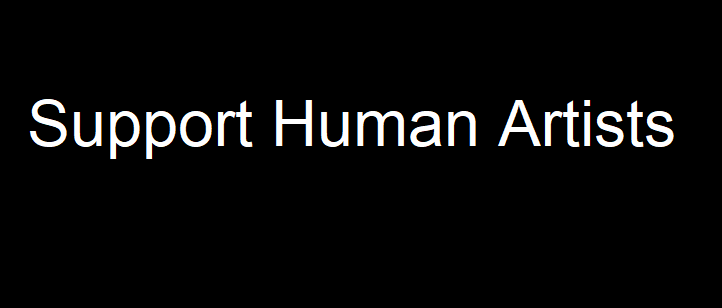
Human Wisdom on Artificial Intelligence

Public Submission for USCO Generative AI Call for Comment
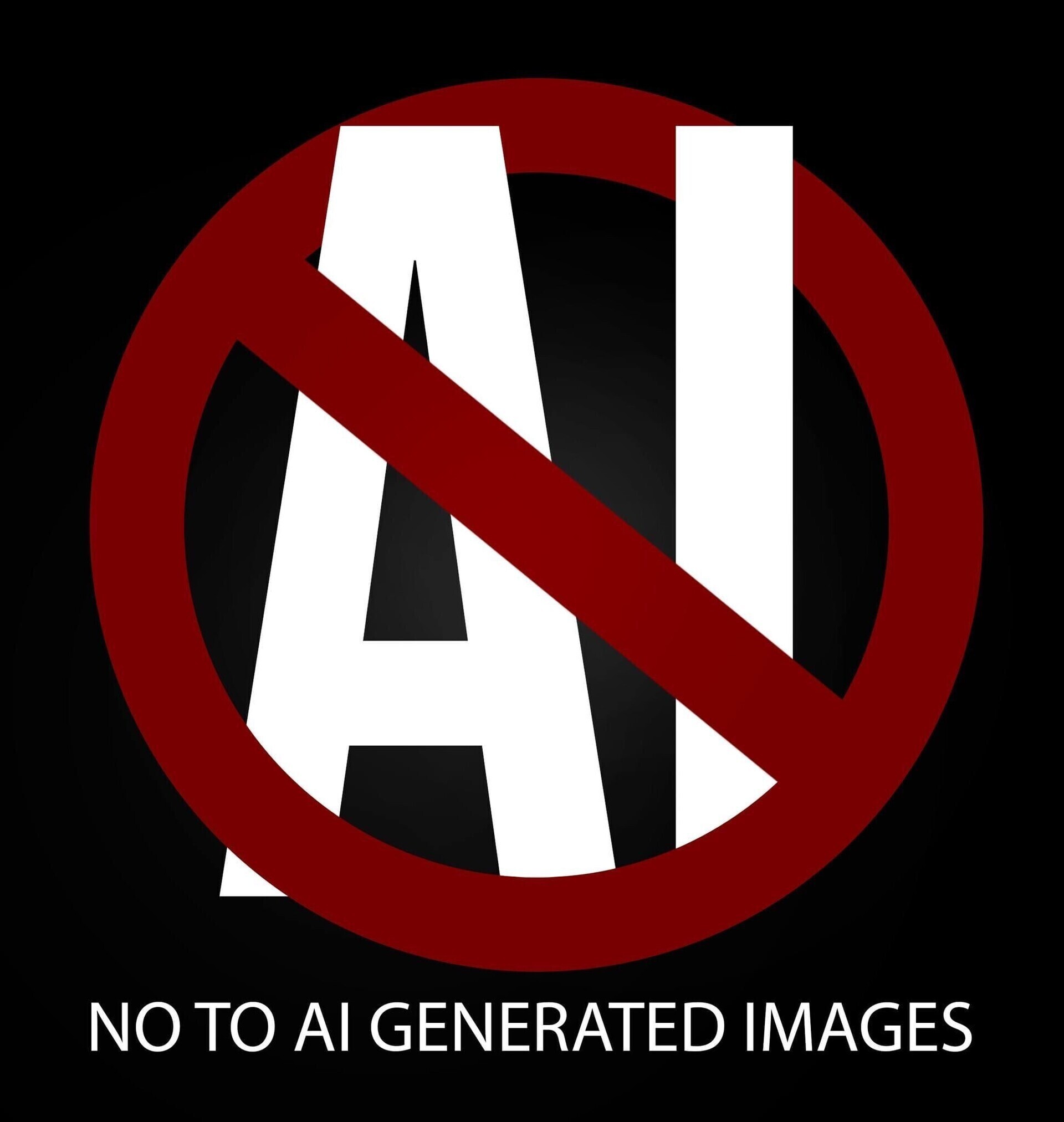
Resources for Human Creatives
About The Author
Chief Luddite
Luddite in Chief at Luddite Pro - Keeping up with technology so you don't have to.
